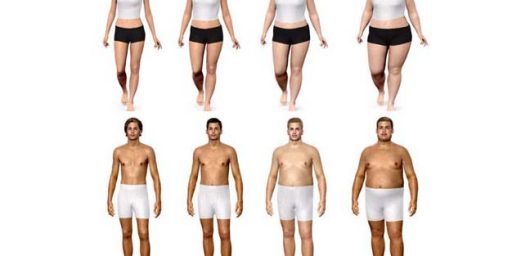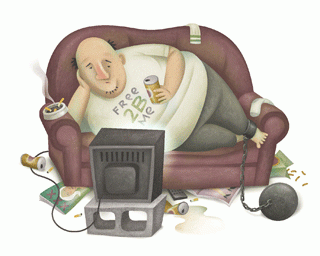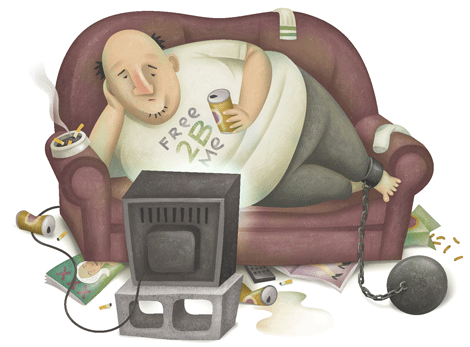Have Another Krispy Kreme
Dean Esmay passes on news of yet more encouraging news in the fight to keep people who eat too much and get too little exercise from becoming obese. Unfortunately, the world’s poor, especially in Africa and Asia, won’t be able to afford this treatment.






Oh, you’re bad 😉
Not just bad, mind you, but cruel and ill-informed.
[shrug]
There is no evidence that the morbidly obese have less discipline than normalweight people, nor is there any evidence that most of the chronically obese can lose their overweight by eating less and exercising more. But most people don’t know this and most, when they hear it, don’t want to believe it. This, despise that “eat less and exercise more” is the least effective treatment for obesity available, and despite the fact that there’s a good bit of evidence that it’s actually a primary cause of obesity.
But hey. It’s funny for some people I guess.
Oh, by the way, a minor nit: the drug would likely not be used to prevent obesity’s onset, but rather, to control and reverse the disease for those who already have it.
This is such a complex subject, and it’s steeped in so much prejudice, not to mention judeo-christian beliefs, that it’s hard to get people to take it seriously.
Clearly, some people have more difficulty maintaining a healthy body fat level than others. On the other hand, morbid obesity on a mass scale is almost entirely problem of recent vintage relegated almost exclusively to the United States and a handful of other very wealthy, sedentary societies. It’s almost nonexistent in countries where they walk everywhere, don’t work in offices, and don’t eat mostly processed foods.
Without meaning to step on any toes… I have known a few obese people in my time. To a person, they ate more than I could ever imagine. Not just a little more, but a lot. Sometimes through frequency (high calorie snacks or perpetual snacking), complicated by very, poor food choices, or just plain extra helpings – usually a combination of the three.
Not to say that i’ts just a matter of will power – obviously it goes deeper than that, and there are genetic, psychological and metabolic reasons for it.
But the first issue to clear is the denial. It’s about food intake. They could exercise until the cows come home, but it’s unlikely any of my extremely oveweight friends would have been able to burn off what I watched them consume in a typical day.
People often ask me how I personally stay so slim. I advise them I am on the poverty diet and cannot afford to eat. Lately, that scenario has grow too true to be funny.
I too find it difficult to buy into the notion that obesity is no one’s fault. While endocrinopathies can contribute to obesity (and are often exacerbated by obesity), many people simply are lazy, won’t exercise, and do eat too much low-quality food. It takes far fewer twinkies to get fat than it does apples.
Certain foods have been shown to exert a protective effect in terms of developing metabolic syndrome. Childhood diet also seems to affect later onset of type-II diabetes and obesity, according to some studies.
I strongly believe that people need to be taught how to eat again, and how to listen to their body’s signals. Unless you suffer from a severe glandular problem (like I do), it has been shown to work.
For those few who do have this problem, I hope the drug helps.
and I forgot to mention – despite having metabolic syndrome – I am not obese. In fact, I’m underweight. And I can say (for me) that it’s activity level and diet (both keep my blood sugar under control).
—